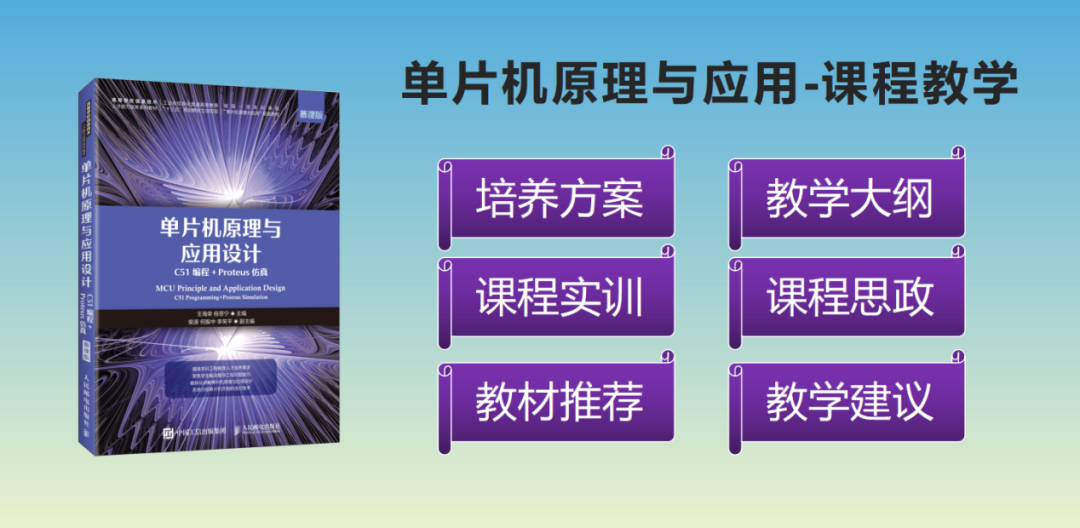
With the widespread adoption of smart products, the development and design of electronic products have gradually become the core content of study for students in electronic-related majors. Since its introduction in the 1970s, the microcontroller has quickly become the preferred choice for developing electronic products due to its strong real-time control capabilities, low cost, and small size. At the same time, many courses centered around microcontrollers (such as the Principles and Applications of Microcontrollers) have become essential courses in electronic-related programs at higher education institutions.
However, how can frontline teachers effectively carry out educational work related to the Principles and Applications of Microcontrollers course and cultivate practical talents that meet the requirements of new engineering disciplines? This question has always lingered in our minds. Therefore, experts and scholars in higher education have continuously reformed and improved this course, for instance, by adding extension and practical teaching content based on theoretical courses to cultivate students’ practical product development capabilities. It is hoped that this article can serve as a starting point for the teaching reform of the “Principles and Applications of Microcontrollers” course in higher education institutions in China.
Course Code: XXX
Course Name: Principles and Applications of Microcontrollers
English Name: MCU Principle and Application
Total Hours: 64 (48+16)
Credits: 4
The “Principles and Applications of Microcontrollers” course is a specialized course for electronic information engineering, electrical engineering and automation, communication engineering, and Internet of Things engineering majors in higher education institutions. It is not only a prerequisite for core courses such as embedded systems and intelligent instruments but also plays a very important role in training students to master the design and programming techniques of microcontroller application systems and deepening their understanding of microcomputer principles.
This course will start from the application purpose, analyzing the MCS-51 series microcontrollers, enabling students to master the basic concepts and knowledge of microcontroller hardware and software, as well as the design and programming knowledge of microcontroller application systems, and develop basic skills in programming with C51, thereby cultivating students’ ability to analyze and solve problems in the field of microcontroller application system design.
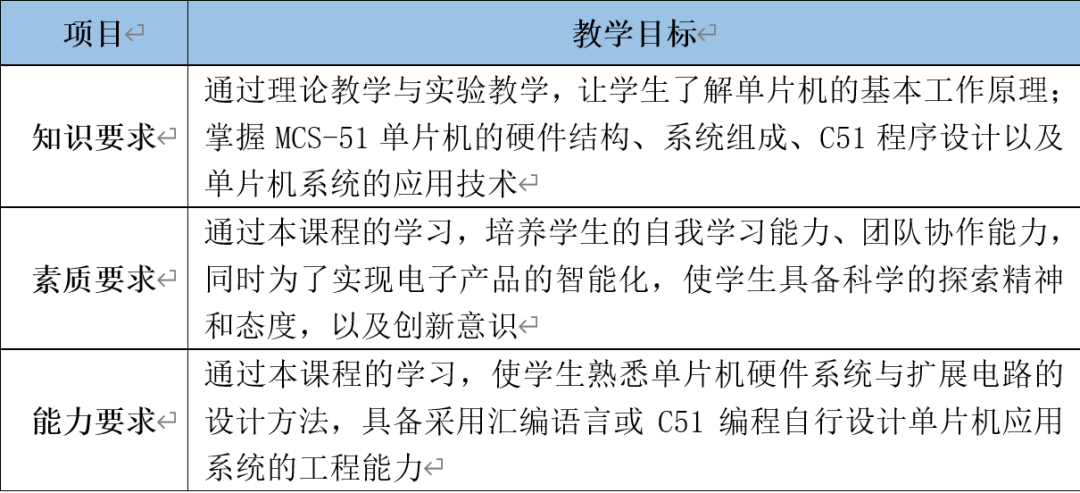
This course adopts a task-driven method and experimental project method for teaching. Through multimedia theoretical lectures, case analysis discussions, and a blended teaching approach (theoretical teaching), students will become familiar with the working principles, programming methods, and interface technologies of microcontrollers. At the same time, through practical system development guided by teachers outside of class (experimental teaching), the integration of theory and practice is achieved, thereby attaining the goal of cultivating students’ thinking, application, innovation, and hands-on abilities.
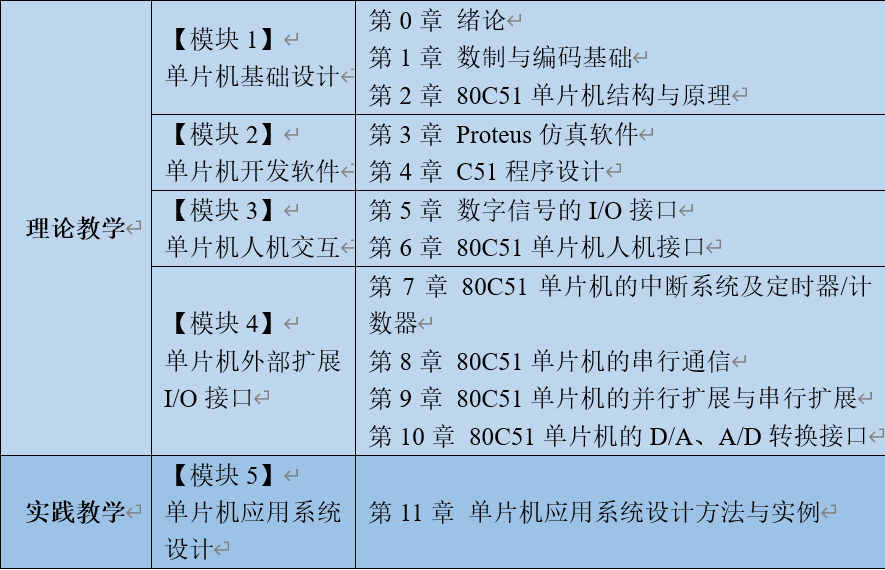
To enable relevant course instructors to systematically carry out both theoretical and experimental teaching for this course, a common hour model is provided for reference, which is 48 theoretical hours + 16 experimental hours = 64 hours. Additionally, students are recommended to engage in 40 hours of self-study, making the total study load 104 hours. Instructors can organize teaching according to a modular structure and flexibly adjust specific chapters based on actual hours and students’ majors.
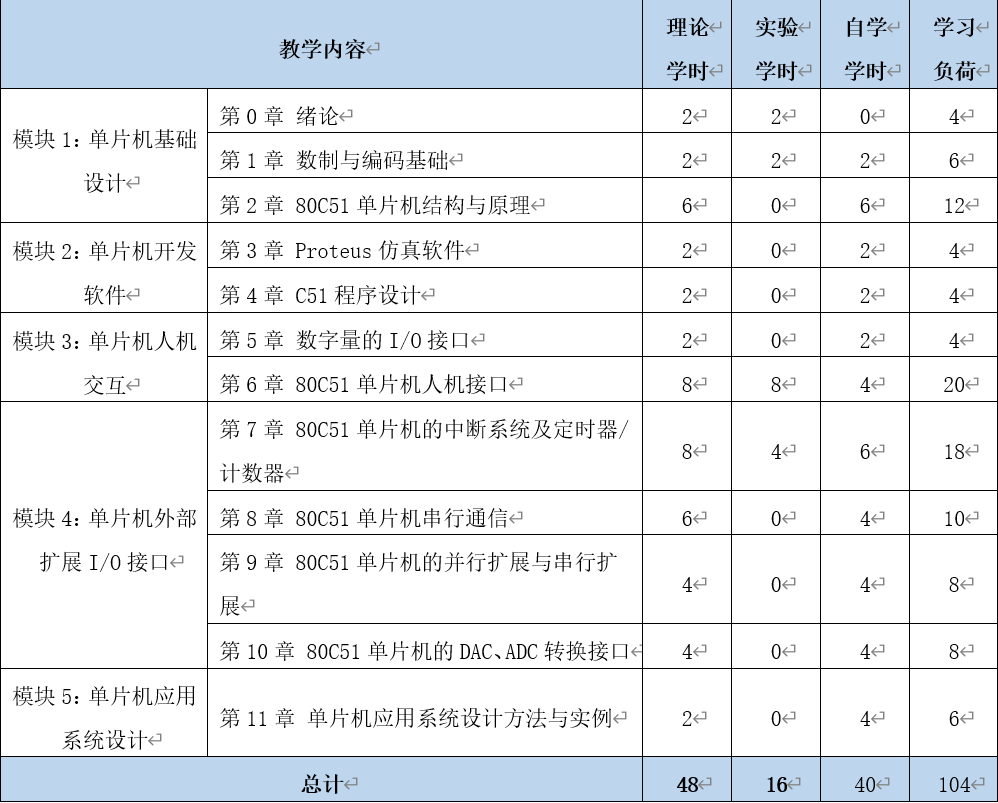
Course grades are composed of: regular grades + final examination grades
Assessment methods: combination of closed-book exams and regular assessments
Note: Regular grades (including experiments, assignments, class notes, etc.) account for 30%, while final exam grades account for 70%.
Teaching Outline for Principles and Applications of Microcontrollers Design.doc
To better assist college teachers in formulating the teaching outline for the “Principles and Applications of Microcontrollers” course and conducting teaching work, we provide training schemes from several universities for reference.
Talent Training Scheme for Electronic Information Engineering Major at Changsha University of Science and Technology.pdf
Undergraduate Talent Training Scheme for Electronic Information Engineering Major at Hainan University.docx
Talent Training Scheme for Electronic Information Engineering Major at Ocean University of China.pdf
Talent Training Scheme for Intelligent Product Development and Application Major at Haikou Economic College.docx
Talent Training Scheme for Electrical Automation Technology Major at Hainan Vocational College.doc
To enable students to acquire comprehensive practical abilities related to microcontroller application system development, it is recommended to conduct practical training simultaneously with theoretical teaching. The content of the practical training corresponds to the content of the theoretical teaching.
The entire course practical training is divided into five parts, each including a certain number of examples, as shown in the figure below. Instructors can freely select based on the hour situation and the class they teach. Relevant example source codes, as well as the electronic versions of the basic experimental guidebook and course design guidebook for this course, can be downloaded from the Renyou Education Community (www.ryjiaoyu.com).
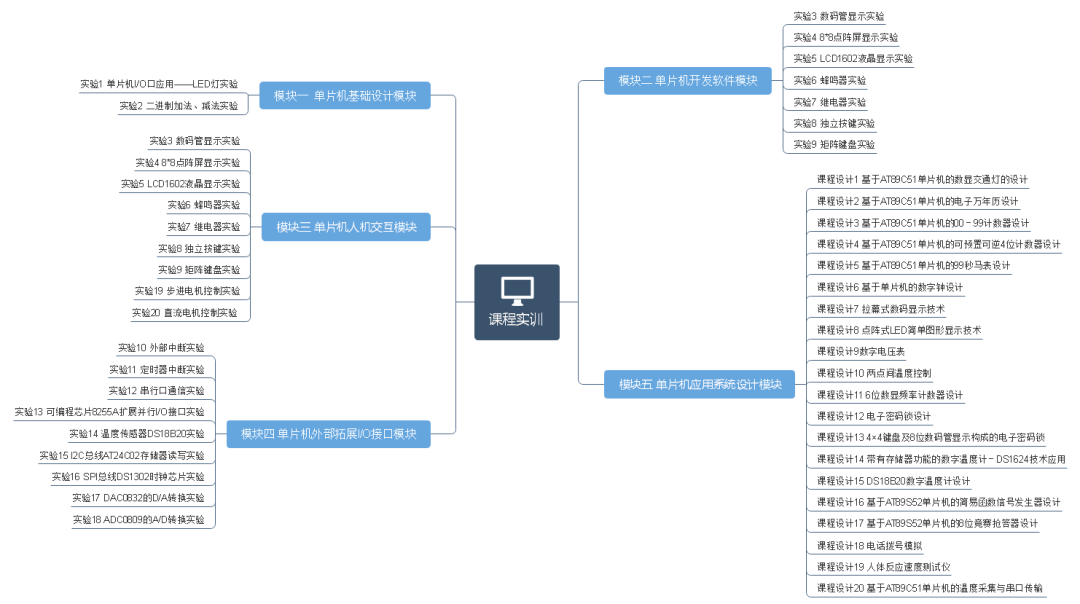
[Download] Above example source code + Basic experimental guidebook (electronic version) + Course design guidebook (electronic version)
For a long time, students’ ideological and political education has mainly relied on ideological and political courses, neglecting the important role of professional courses in ideological and political education. This has led to students’ ideological and political levels not meeting talent training requirements, resulting in issues such as a lack of cultural understanding and deviations in value orientation in practical work. In the long-term teaching process of professional courses, the content has focused on the application and mastery of skills, while the aspect of “ideological and political education” has rarely been reflected in the classroom, leading to a feeling of lacking ideological guidance, especially in personal qualities and values.
In classroom teaching, the deep integration of the professional course teaching system and ideological and political construction needs to address the following key issues.
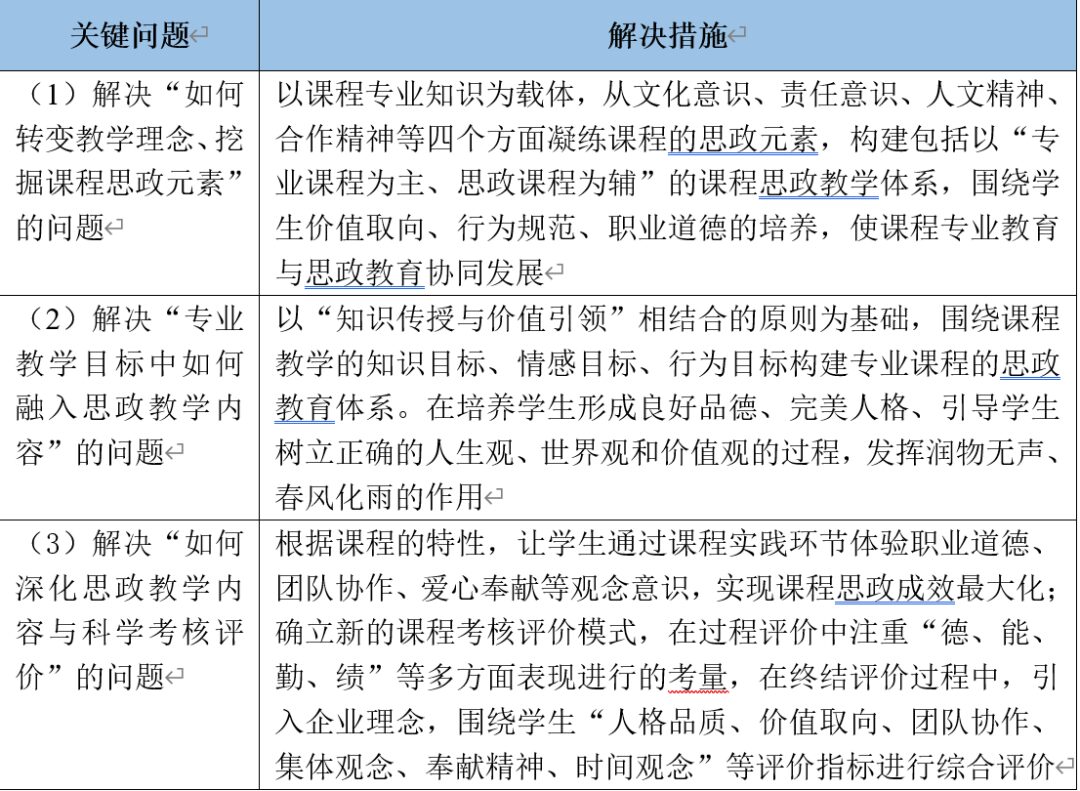
[Learn about course ideology and politics]
## From “Ideological and Political Courses” to “Course Ideological and Politics”
## Constructing a Large Pattern of Ideological and Political Education in Courses
[Entering Course Ideological and Politics]
## How to Construct the Teaching Model of “Course Ideological and Politics”
## “Course Ideological and Politics” Returns Teachers to the Original Intention of Teaching
[Implementing Course Ideological and Politics]
## Implementation of Course Ideological and Politics in the “Principles and Applications of Microcontrollers” Course
## Construction and Practice of Course Ideological and Politics in the “Principles and Applications of Microcontrollers” Course
## Practical Exploration of Integrating Ideological and Political Elements into Classroom Teaching – Taking the Principles of Microcontrollers and Interface Technology Course as an Example
[Implementing Course Ideological and Politics]
## Guidelines for Teaching Design of “Course Ideological and Politics”
## Beijing University of International Business and Economics Explores the Ideological and Political Education Elements Contained in Various Courses, Promoting Classroom Teaching Reform through “Course Ideological and Politics”
[Provincial Level First-Class Undergraduate Course – Supporting Textbooks]
“Principles and Applications of Microcontrollers Design (MOOC Version)”
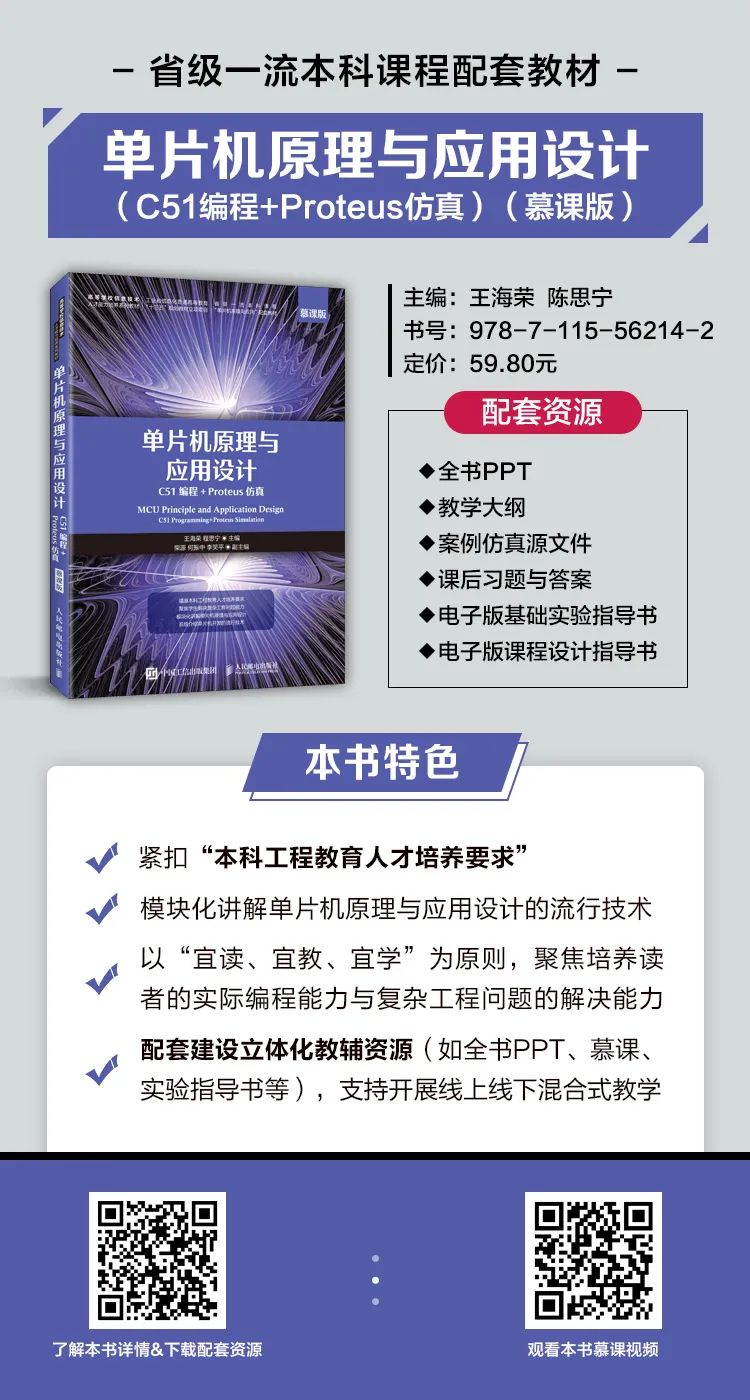
The author has developed high-quality, multi-dimensional teaching resources for the book “Principles and Applications of Microcontrollers Design”, as shown below.
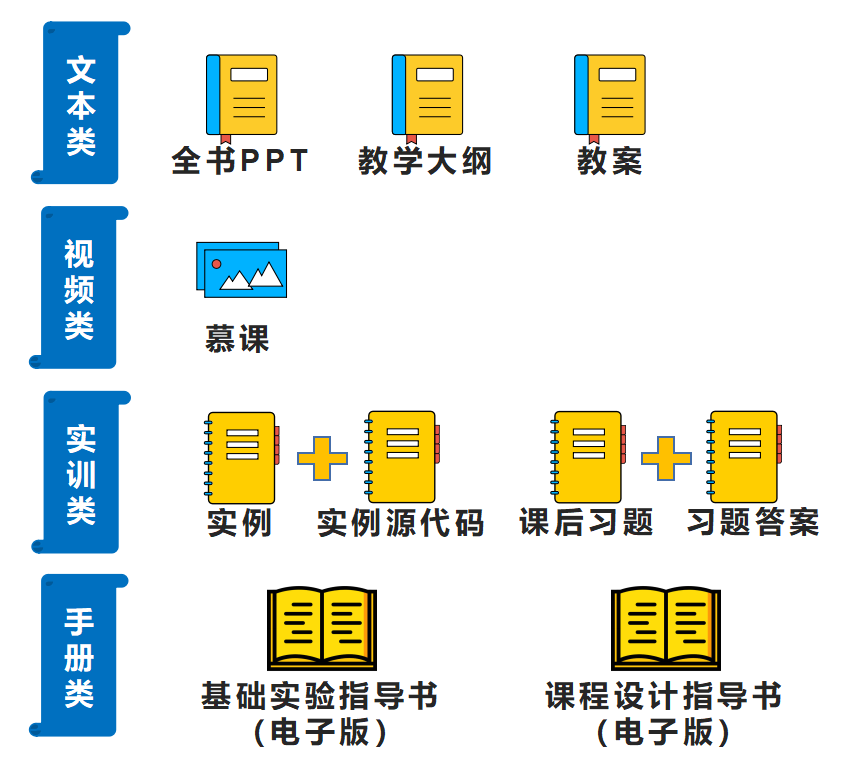
[Download] Supporting multi-dimensional teaching resources for this book
[Teaching Suggestions Small Classroom]
Teaching Suggestions Small Classroom-PPT.pptx
[Microcontroller Principles and Applications – Teaching Exchange Group]

Scan to join the exchange group
Get more teaching suggestions and auxiliary resources
